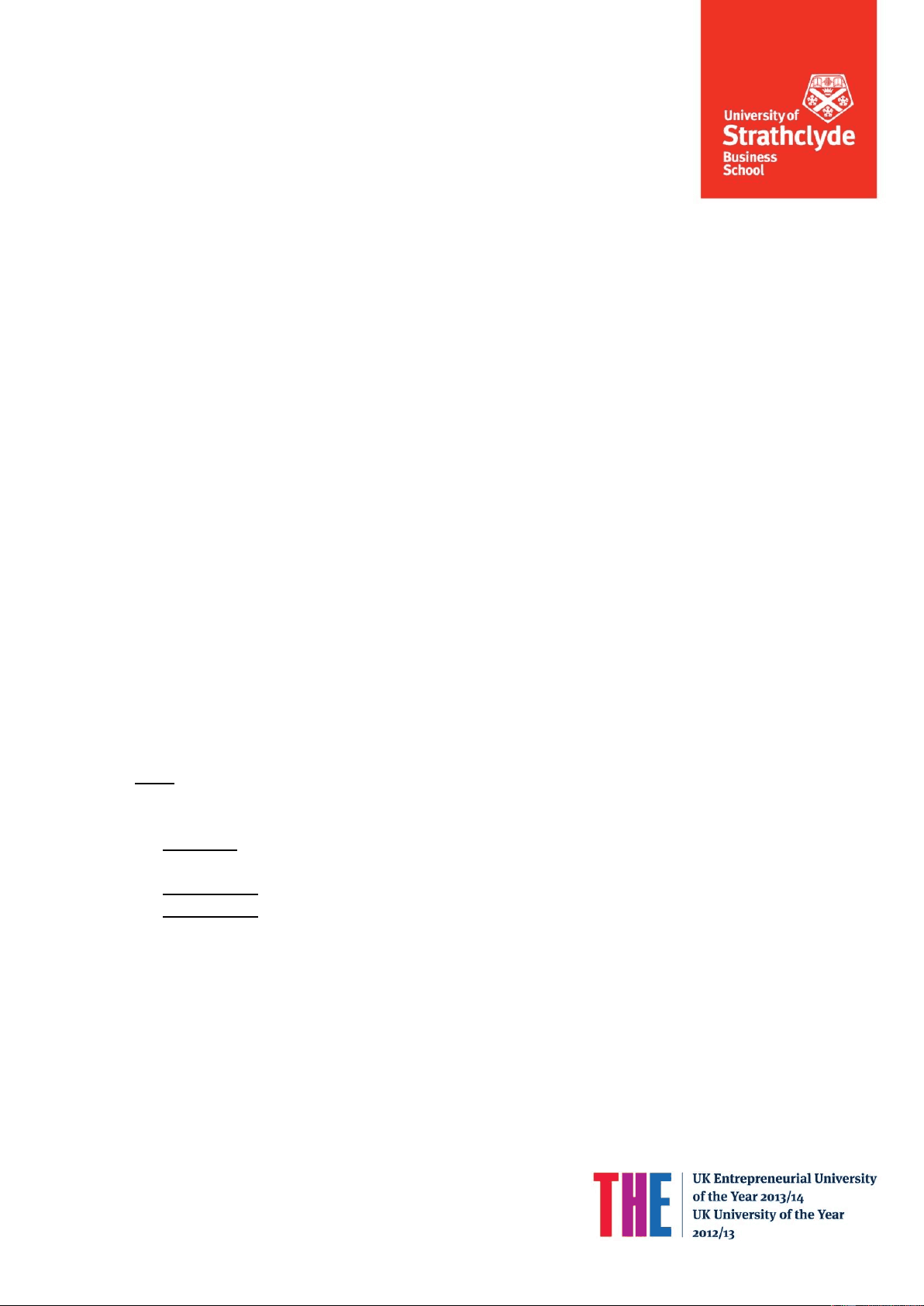
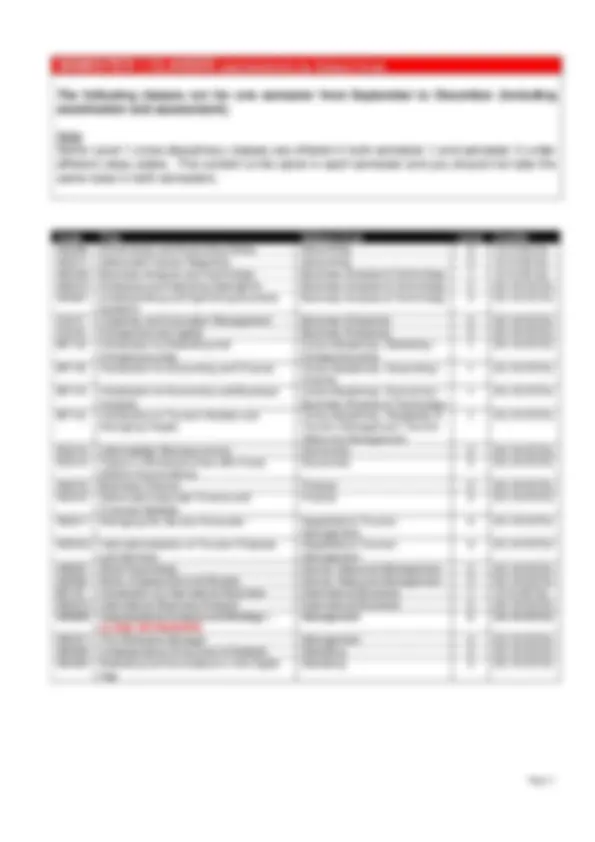
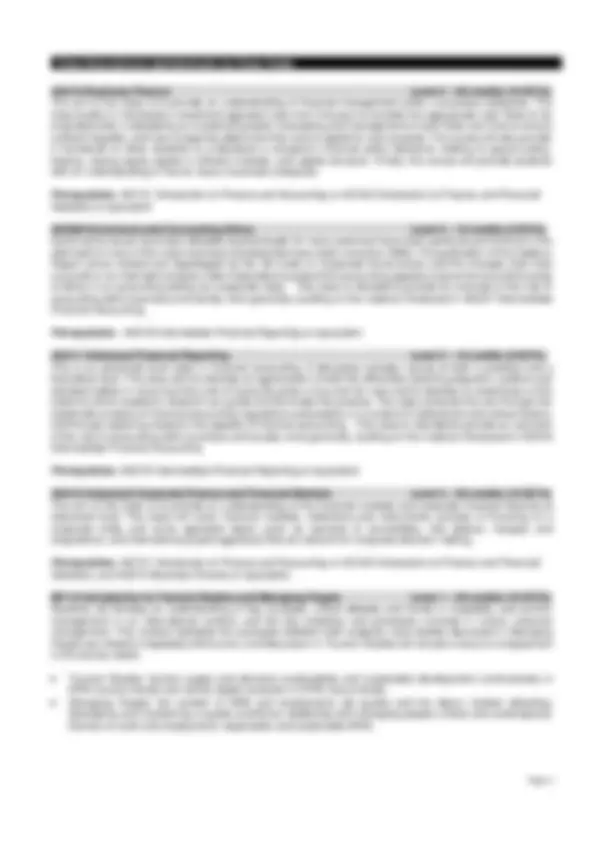
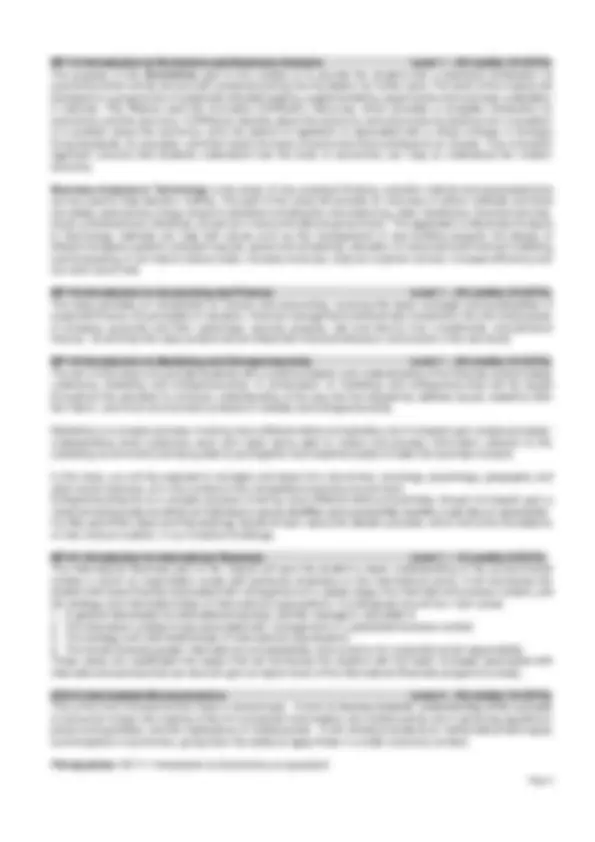
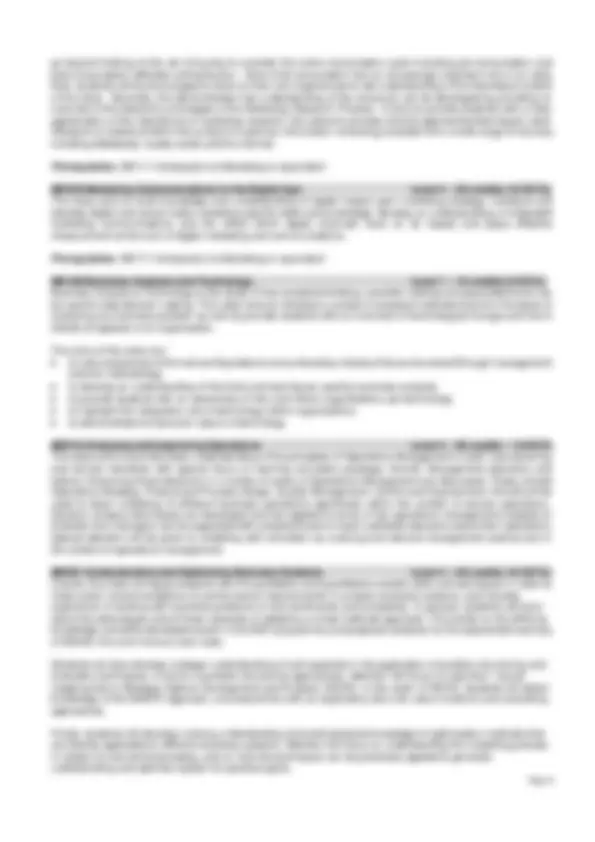
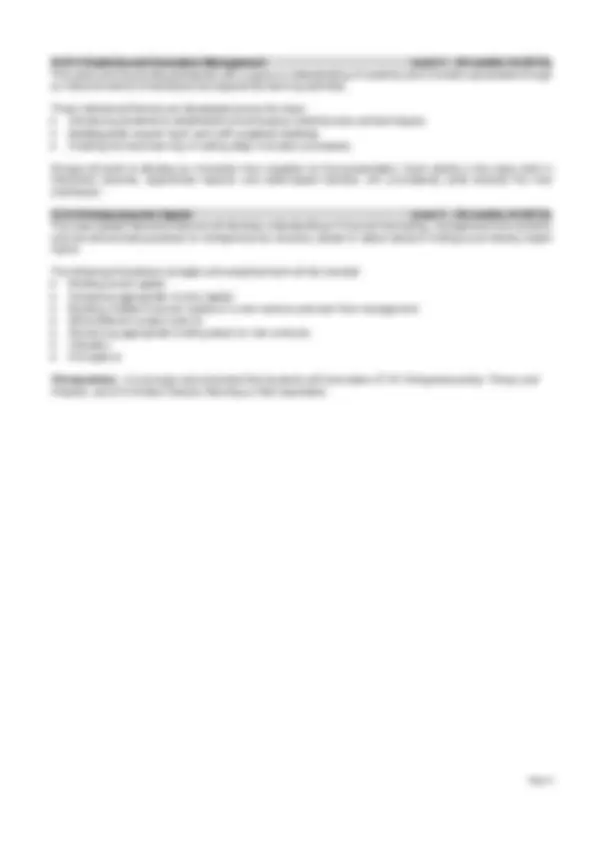
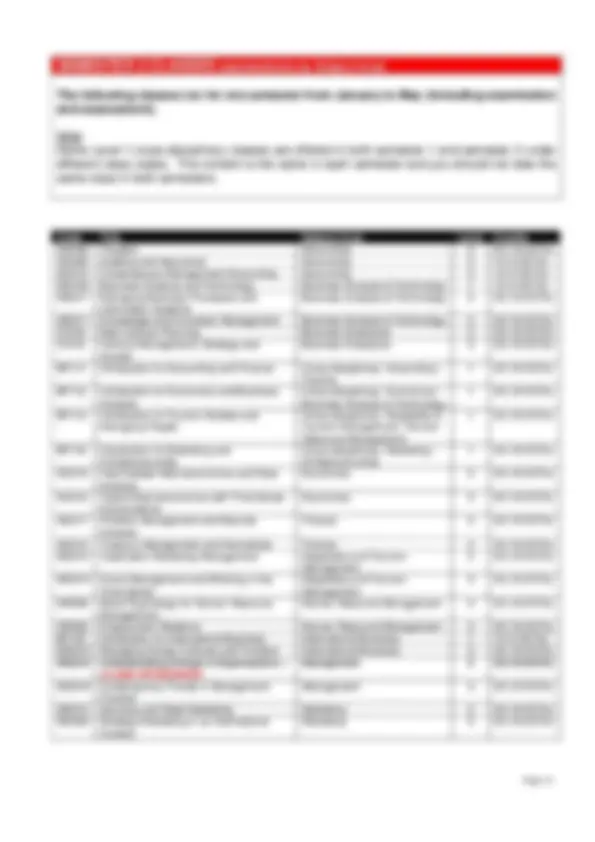
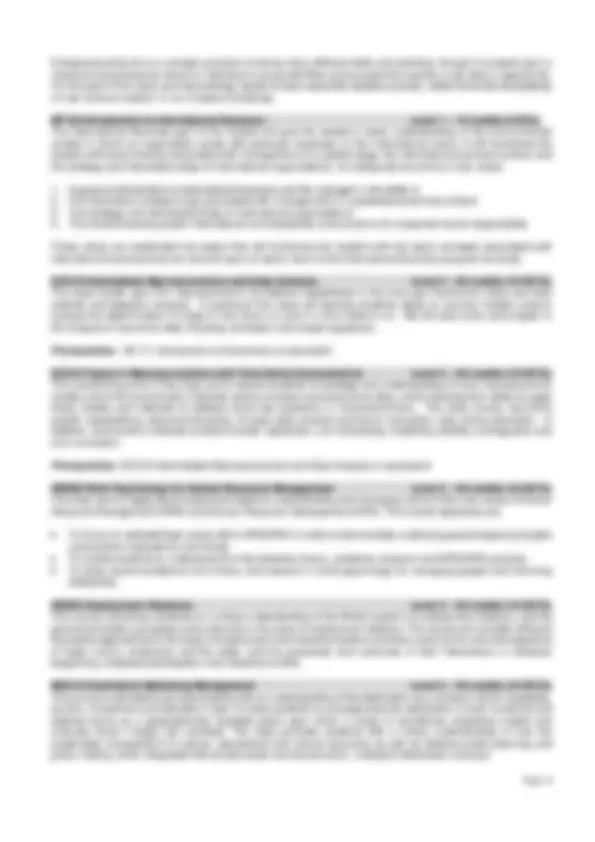

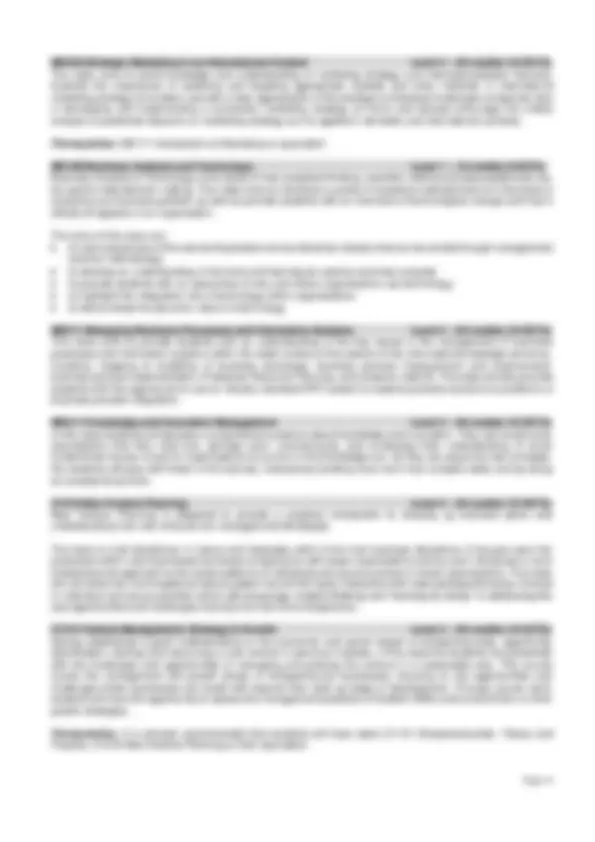


Study with the several resources on Docsity

Earn points by helping other students or get them with a premium plan


Prepare for your exams
Study with the several resources on Docsity

Earn points to download
Earn points by helping other students or get them with a premium plan
Community
Ask the community for help and clear up your study doubts
Discover the best universities in your country according to Docsity users
Free resources
Download our free guides on studying techniques, anxiety management strategies, and thesis advice from Docsity tutors
The class provides an introduction to finance covering the basic theories of financial markets, corporate finance and investment, financial management, personal ...
Typology: Study notes
1 / 15

This page cannot be seen from the preview
Don't miss anything!










The place of useful learning The University of Strathclyde is a charitable body, registered in Scotland, number SC
Information is correct at the time of publishing but may be subject to change
Note − A full workload at Strathclyde is 60 credits (30 ECTS) per semester − Full Year classes run for the full academic year and are only open to students attending for two semesters − Semester 1 classes run from September to December (including exams) − Semester 2 classes run from January to May (including exams)
FULL YEAR CLASSES (alphabetically by Subject Area) The following classes run for two semesters and are only open to students on exchange for the full academic year. Code Title Subject Area Level Credits AG105 Introduction to Finance and Financial Statistics Accounting 1 20 (10 ECTs) AG111 Accounting Technologies Accounting 1 20 (10 ECTs) AG218 Intermediate Financial Reporting Accounting 2 20 (10 ECTs) AG219 Cost and Management Accounting Accounting 2 20 (10 ECTs) BF111 Academic Skills All disciplines 1 10 ( 5 ECTs) Class Descriptions (alphabetically by Class Code) AG105 Introduction to Finance and Financial Statistics Level 1 – 20 credits (10 ECTs) The class provides an introduction to finance covering the basic theories of financial markets, corporate finance and investment, financial management, personal finance, security analysis and statistical applications in finance. This class provides the foundations for the Business Finance course. AG111 Accounting Technologies Level 1 – 20 credits (10 ECTs) This class is designed to provide an introduction to accounting for those students who intend to study accounting or accounting and finance in subsequent years. It assumes no prior knowledge. It ensures that, in combination with other classes, the accreditation requirements of professional accountancy bodies are met. AG218 Intermediate Financial Reporting Level 2 – 20 credits (10 ECTs) This class is concerned with the regulation of financial reporting. It includes the preparation of the financial statements of limited companies under the Companies Act 2006 and the application of the accounting standards set by the accountancy profession. The class is intended to cover some of the problems associated with properly regulating financial reporting. The fact that the rules are often vague or that accountants have been known to abuse loopholes contained within them could come as something of a shock. In many cases, there will be no single correct answer. In the exam, marks will often be awarded for your opinions (and the arguments which you put forward to support them). Prerequisites : AG111 Accounting Technologies or equivalent AG219 Cost and Management Accounting Level 2 – 20 credits (10 ECTs) This class is designed to provide the students with a deeper understanding of the concepts and practice of cost and management accounting. It builds on the material introduced in the first year class, Accounting Technologies. The aim of this class is to provide students with the tools to enable them to use accounting information to assist management in decision-making and with the planning and controlling of an organisation’s activities. Prerequisites : AG111 Accounting Technologies or equivalent BF111 Academic Skills Level 1 – 10 credits ( 5 ECTs) The module has a very broad syllabus with an aim of ensuring all students have the basic skills in place to succeed at university. Content includes essay and report writing; academic reading; assessment and feedback; library skills; communication skills; research and data analysis skills; digital marketing and basic programming skills.
Class Descriptions (alphabetically by Class Code) AG215 Business Finance Level 2 – 20 credits (10 ECTs) The aim of the class is to provide an understanding of financial management within a business enterprise. The class builds on introductory investment appraisal rules from first year to consider the appropriate cash flows to be evaluated when undertaking an investment project, forecasting and management of cash flows over time to ensure sufficient liquidity, and how companies determine their cost of capital for such projects. The course will also provide a framework to allow students to understand a company's financial policy decisions relating to payout policy, leasing, raising equity capital in efficient markets, and capital structure. Finally, the course will provide students with an understanding of how to value a business enterprise. Prerequisites : AG151 Introduction to Finance and Accounting or AG105 Introduction to Finance and Financial Statistics or equivalent AG309 Governance and Accounting Ethics Level 3 – 10 credits (5 ECTs) Governance issues have been debated at great length for many years but have reach particular prominence in the aftermath of many of the major business scandals that have arisen since the 1990s. The publication of the Cadbury Report (since revised and repackaged as the UK Code on Corporate Governance) and the changes that have occurred on an international basis make it desirable to present the accounting aspects of governance and the study of ethics in an accounting setting as a separate class. This class is intended to provide an overview of the role of accounting within business and society more generally, building on the material introduced in AG207 Intermediate Financial Accounting. Prerequisites : AG218 Intermediate Financial Reporting or equivalent AG311 Advanced Financial Reporting Level 3 – 10 credits (5 ECTs) This is an advanced level class in financial accounting. It discusses complex issues at both a practical and a theoretical level. The class aims to develop an appreciation of both the difficulties faced by preparers, auditors and standard setters in ensuring that a set of accounts gives a true and fair view and to develop an awareness of the extent to which academic research can guide and illuminate this process. The class achieves this aim through the systematic analysis of financial accounting regulations and practice, in a context of institutional and cultural factors, and through exploring research into aspects of financial accounting. This class is intended to provide an overview of the role of accounting within business and society more generally, building on the material introduced in AG Intermediate Financial Accounting Prerequisites : AG218 Intermediate Financial Reporting or equivalent AG312 Advanced Corporate Finance and Financial Markets Level 3 – 20 credits (10 ECTs) The aim of the class is to provide an understanding of the financial markets and corporate financial theories at advanced level. The class will cover financial markets, institutions and instruments, process of financing of a corporate entity and some specialist topics (such as warrants & convertibles, real options, mergers and acquisitions, and international project appraisal) that are relevant for corporate decision making. Prerequisites : AG151 Introduction to Finance and Accounting or AG105 Introduction to Finance and Financial Statistics, and AG215 Business Finance or equivalent. BF112 Introduction to Tourism Studies and Managing People Level 1 – 20 credits ( 10 ECTs) Students will develop an understanding of key concepts, critical debates and trends in hospitality and tourism management in an international context, and the key practices and processes involved in human resource management. This module highlights the synergies between both subjects; case studies discussed in Managing People are linked to hospitality and tourism, and discussion in Tourism Studies will include a focus on employment in the service sector.
BF114 Introduction to Economics and Business Analysis Level 1 – 20 credits ( 10 ECTs) The purpose of the Economics part of the module is to provide the student with a balanced introduction to economics which will be at once self-contained and lay the foundation for further work. The work of the module will be based on a programme of systematic directed reading, supplemented by experiments and exercises undertaken in tutorials. This Module uses the innovative COREecon resources, which provides a complete introduction to economics and the economy. COREecon teaches about the economy and economics by starting from a question or a problem about the economy—why the advent of capitalism is associated with a sharp increase in average living standards, for example—and then teach the tools of economics that contribute to an answer. This innovative approach ensures that students understand how the tools of economics can help us understand the modern economy. Business Analysis & Technology is the study of how analytical thinking, scientific method and associated tools can be used to help decision making. This part of the class will provide an overview of where methods and tools are widely used across a large range of industries including the manufacturing, retail, healthcare, financial services, travel, and electronics industries, as well as in local and national government. The application of Business Analysis & Technology methods can help with issues such as the management of new building projects, the design of efficient transport systems and plant layouts, personnel scheduling, allocation of resources and financial modelling and forecasting, It can help to reduce costs, increase revenues, improve customer service, increase efficiency and can even save lives. BF116 Introduction to Accounting and Finance Level 1 – 20 credits ( 10 ECTs) The class provides an introduction to finance and accounting, covering the basic concepts and practicalities of corporate finance, the principles of valuation, financial management and business investment, the role and purpose of company accounts and their usefulness, security analysis, risk and returns from investments, and personal finance. At all times the class content will be linked with financial behaviour and events in the real world. BF118 Introduction to Marketing and Entrepreneurship Level 1 – 20 credits ( 10 ECTs) The aim of this class is to provide students with a solid foundation and understanding of the theories and principles underlying marketing and entrepreneurship. A combination of marketing and entrepreneurship will be taught throughout the semester to enhance understanding of the way the two disciplines address issues related to both the macro- and micro-environment contexts of markets and entrepreneurship. Marketing is a complex process involving many different skills and activities, but it is based upon simple principles: understanding what customers want and need, being able to collect and process information relevant to the marketing environment and being able to put together and implement plans to take the business forward. In this class, you will be exposed to concepts and ideas from economics, sociology, psychology, geography and other social sciences, all in the context of the competitive business environment. Entrepreneurship too is a complex process involving many different skills and activities, though it is based upon a ‘mind-set and process by which an individual or group identifies and successfully exploits a new idea or opportunity.’ For this part of the class you’ll be working I teams to learn about the ideation process, which forms the foundations of new venture creation, in our Creative Challenge. BF121 Introduction to International Business Level 1 – 10 credits (5 ECTs) The International Business part of the module will give the student a basic understanding of the environmental context in which an organisation exists with particular emphasis on the international arena. It will familiarise the student with basic theories associated with management on a global stage, the international business context, and the strategy and interrelationships of international organisations. It is designed around four main areas:
system; global capital and foreign exchange markets; and experiences of regional economic integration across the globe. Part 1 smoothly connects to Part 2 as it comes to a close with a set of guest lectures on how businesses themselves try to influence and alter their environment via international business lobbying. Throughout, emphasis is placed on the implications of each topic for the management of different types of firms operating across national borders.
go beyond looking at the act of buying to consider the entire consumption cycle including pre-consumption and post-consumption attitudes and behaviour. Given that consumption has an increasingly important role in our daily lives, students will be encouraged to draw on their own experiences to aid understanding of the theoretical content of the class. Secondly, this demonstrates how understanding of the consumer can be developed by providing an overview of the decisions and stages of the Marketing Research Process. It aims to provide students with a clear appreciation of the importance of marketing research, the research process and the approaches/techniques used. Research is looked at within the context of customer information now being available from a wide range of sources including databases, loyalty cards and the internet. Prerequisites : MK111 Introduction to Marketing or equivalent MK329 Marketing Communications in the Digital Age Level 3 – 20 credits (10 ECTs) The class aims to build knowledge and understanding of digital impact upon marketing strategy; introduce and develop digital and social media marketing specific skills and knowledge; develop an understanding of Integrated marketing communications and the effect which digital channels have on its impact and place effective measurement at the core of digital marketing and communications. Prerequisites : MK111 Introduction to Marketing or equivalent MS108 Business Analysis and Technology Level 1 – 10 credits (5 ECTs) Business Analysis & Technology is the study of how analytical thinking, scientific method and associated tools can be used to help decision making. This class aims to introduce a variety of analytical methods that form the basis of analysing any business problem as well as provide students with an overview of technological change and how it affects all aspects of an organisation. The aims of this class are:
SEMESTER 2 CLASSES (alphabetically by Subject Area) The following classes run for one semester from January to May (including examination and assessment). Note Some Level 1 cross-disciplinary classes are offered in both semester 1 and semester 2 under different class codes. The content is the same in each semester and you should not take the same class in both semesters. Code Title Subject Area Level Credits AG209 Taxation Accounting 2 20 (10 ECTs) AG308 Auditing and Assurance Accounting 3 10 (5 ECTs) AG310 Contemporary Management Accounting Accounting 3 10 (5 ECTs) MS109 Business Analysis and Technology Business Analysis & Technology 1 10 (5 ECTs) MS211 Managing Business Processes and Information Systems Business Analysis & Technology 2 20 (10 ECTs) MS311 Knowledge and Innovation Management Business Analysis & Technology 3 20 (10 ECTs) Z1218 New Venture Planning Business Enterprise 2 20 (10 ECTs) Z1315 Venture Management, Strategy and Growth Business Enterprise 3 20 (10 ECTs) BF117 Introduction to Accounting and Finance Cross-disciplinary: Accounting / Finance 1 20 (10 ECTs) BF115 Introduction to Economics and Business Analysis Cross-disciplinary: Economics / Business Analysis & Technology 1 20 (10 ECTs) BF113 Introduction to Tourism Studies and Managing People Cross-disciplinary: Hospitality & Tourism Management / Human Resource Management 1 20 (10 ECTs) BF119 Introduction to Marketing and Entrepreneurship Cross-disciplinary: Marketing / Entrepreneurship 1 20 (10 ECTs) EC216 Intermediate Macroeconomics and Data Analysis Economics 2 20 (10 ECTs) EC316 Topics Macroeconomics with Time Series Econometrics Economics 3 20 (10 ECTs) AG217 Portfolio Management and Security Analysis Finance 2 20 (10 ECTs) AG313 Treasury Management and Derivatives Finance 3 20 (10 ECTs) MG212 Destination Marketing Management Hospitality and Tourism Management 2 20 (10 ECTs) MG314 Event Management and Working in the Third Sector Hospitality and Tourism Management 3 20 (10 ECTs) HR208 Work Psychology for Human Resource Management Human Resource Management 2 20 (10 ECTs) HR303 Employment Relations Human Resource Management 3 20 (10 ECTs) BF122 Introduction to International Business International Business 1 10 (5 ECTs) MG315 Managing Across Cultures and Frontiers International Business 3 2 0 (10 ECTs) MG210 Understanding Change in Organisations – CLASS WITHDRAWN Management 2 20 (10 ECTs) MG318 Contemporary Trends in Management Practice Management 3 20 (10 ECTs) MK212 Services and Retail Marketing Marketing 2 20 (10 ECTs) MK328 Strategic Marketing in an International Context Marketing 3 20 (10 ECTs)
Class Descriptions (alphabetically by Class Code) AG209 Taxation Level 2 – 20 credits (10 ECTs) The main areas of taxation covered will be Income Tax, Corporation Tax and Capital Gains tax - in that order. In addition, there is a study of the principles of VAT and NIC (National Insurance Contributions ). AG217 Portfolio Management and Security Analysis Level 2 – 20 credits (10 ECTs) The class aims to provide an understanding of the principles and theories relevant to the process of building investment portfolios. The class covers practical applications as well as theoretical material. The class considers mean-variance portfolio theory, international diversification, linear asset pricing models such as the capital asset pricing model (CAPM) and arbitrage pricing theory (APT), market efficiency, behavioural finance, valuation of bonds, term structure of interest rates, bond portfolio management, mutual funds, fund performance, and issues in portfolio management. Prerequisites : AG151 Introduction to Finance and Accounting or AG105 Introduction to Finance and Financial Statistics or equivalent AG308 Auditing and Assurance Level 3 – 10 credits (5 ECTs) This class examines the role of auditing in the overall framework of corporate governance. The core of the class will cover auditing topics and be focused on the external audit of large companies, although much of the material covered will be relevant to internal audit and to the audit of smaller organisations. Auditing is an important element of financial reporting and is an extremely important component of the whole system of corporate governance. This class will build on the foundations laid in AG309 Governance and Accounting Ethics by investigating the audit process. The class will look at auditing from both a theoretical and a practical perspective and will cover a great deal of ground - most of which is necessary in order to obtain exemptions from the examinations set by professional accounting bodies. Prerequisites : AG218 Intermediate Financial Reporting or equivalent AG310 Contemporary Management Accounting Level 3 – 10 credits (5 ECTs) This class examines the role of management accounting to assist managers in solving contemporary organisational problems. This class is intended to extend your knowledge and understanding of contemporary management accounting practice, building on the material introduced in AG208 Intermediate Management Accounting. The class is intended to allow the student to develop skills in effectively applying management accounting techniques and processes in different organisational contexts and situations. The class achieves this aim by introducing the student to a range of contemporary management accounting techniques, evaluating these techniques and applying them in a series of case study workshops. All of the workshops in the class will be based on a single case to illustrate the complexity and interconnectedness of applying these different techniques. Prerequisites: AG219 Cost and Management Accounting or equivalent AG311 Advanced Financial Reporting Level 3 – 10 credits (5 ECTs) This is an advanced level class in financial accounting. It discusses complex issues at both a practical and a theoretical level. The class aims to develop an appreciation of both the difficulties faced by preparers, auditors and standard setters in ensuring that a set of accounts gives a true and fair view and to develop an awareness of the extent to which academic research can guide and illuminate this process. The class achieves this aim through the systematic analysis of financial accounting regulations and practice, in a context of institutional and cultural factors, and through exploring research into aspects of financial accounting. This class is intended to provide an overview of the role of accounting within business and society more generally, building on the material introduced in AG Intermediate Financial Accounting Prerequisites : AG218 Intermediate Financial Reporting or equivalent
Entrepreneurship too is a complex process involving many different skills and activities, though it is based upon a ‘mind-set and process by which an individual or group identifies and successfully exploits a new idea or opportunity. For this part of the class you’ll be working I teams to learn about the ideation process, which forms the foundations of new venture creation, in our Creative Challenge. BF122 Introduction to International Business Level 1 – 10 credits (5 ECs) The International Business part of the module will give the student a basic understanding of the environmental context in which an organisation exists with particular emphasis on the international arena. It will familiarise the student with basic theories associated with management on a global stage, the international business context, and the strategy and interrelationships of international organisations. It is designed around four main areas:
The class will apply theory to specific context throughout with reference to a broad international range of destinations and private, public and voluntary sector organisations. The class begins with an exploration of the principles of competitiveness as applied to destinations. Attention proceeds to the inter-organisational contexts where branding, marketing, planning and policymaking affecting the destination take place at local, regional, national and international levels in the public, private and voluntary sectors. This is followed by an in-depth exploration of the natural, cultural heritage, business and educational resources making up the cohesive destination ‘product’. A critical examination of the need to reconcile the sustainable management of these resources for the long term with the drive towards their commodification for consumption is undertaken. Finally, issues in the wider socio-political and economic environments with the potential to influence the sustainability and market viability of the destination are explored. MG314 Event Management and Working in the Third Sector Level 3 – 20 credits (10 ECTs) This class equips students with the understanding of managing events. The class covers a wide range of theory relating to management, marketing, enterprise and organisational studies. Throughout the semester, students participate in the various stages of planning events with researching and selecting the right event; contacting sponsors; developing event themes; site selection; task and responsibility checklists; budgeting and finance; advertising and promotion; and on-side administration. The class concludes with student groups realising their own charity event to put into practice their skills and knowledge gained throughout the class. This hands-on approach of organising and managing a complex project is an effective way to acquire and demonstrate the skills that employers are looking for. MG315 Managing Across Cultures and Frontiers Level 3 – 20 credits (10 ECTs) This class builds on the theories and concepts introduced in Managing in a Global Context at Level 1 and International Business Analysis at Level 2. It does so by focusing more on the complex cross-cultural and human resource issues associated with the implementation of international business practice and strategies. In particular, the class imbues students with an awareness, knowledge and understanding of the importance of the often overlooked ‘soft skills’ of management, particularly as concerns cross-cultural variations and their impact on cross- border human resource management. It will examine the main concepts currently employed to understand the complexity presented to managers in their process of managing people across national and cultural borders, addressing the issues of the impact of culture on management structures and processes. It will then provide understanding of the role which cross-cultural management and international human resource management can play in achieving competitive advantage in international business. There is growing evidence that many international firms face considerable difficulties in implementing the strategies they have determined. A strong focus of this class is therefore towards increasing the understanding of the role of international management in the implementation of international strategies. It will thereby develop intellectual capacities in applying advanced concepts to practical situations, and in reflecting usefully on both the situations and the concepts. MG318 Contemporary Trends in Management Practice Level 3 – 20 credits (10 ECTs) This class takes a critical, practice orientated, look at a broad range of management initiatives that are shaping how organizations operate. Participants will, then, be facilitated in a self-directed exploration of practices such as Business Analytics, Customer Relationship Management (CRM), Human Capital Management (HCM), Business Process Management (BPM). However, the class’s primary aim is to understand how these ‘Management Practices’ shape, and are shaped by, the everyday practices of those working in organizations. This we do by exploring how they emerge from, often longstanding, external ‘trends’ in the way people understand themselves and what organizations are there to do. We explore these in the lecture programme in order to understand not only today’s but also tomorrow’s management practices. We also have to understand that management practices are shaped by the internal dynamics of the organizations adopting them. Participants examine this through a series of conversations with consultants and practitioners in which they gain insight into how management practices are operationalised. The insights gained from these conversations help participants grapple with the challenges presented to them in the management simulation which is undertaken through the class’s tutorial sessions. MK212 Services and Retail Marketing Level 2 – 20 credits (10 ECTs) The aim of this class is twofold: